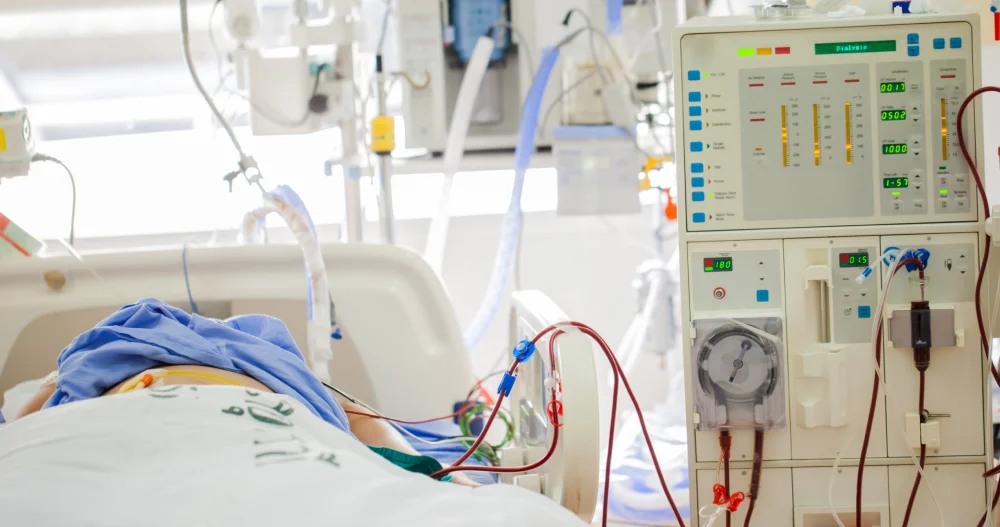
Dialysis
Dialysis is a life-sustaining medical treatment that assumes the functions of healthy kidneys when they have lost the ability to perform them effectively. It serves as a critical therapy for individuals with advanced kidney failure, a condition also known as End-stage Renal Disease (ESRD). The primary purpose of dialysis is to filter waste products, remove excess fluid, and restore the balance of electrolytes in the body.
Types:
- Haemodialysis- Blood is filtered through a machine outside the body, cleaned, and then returned.
- Peritoneal Dialysis- The lining of the abdomen acts as a natural filter using a special dialysis fluid.
Purpose:
- To eliminate excess fluids to prevent swelling and fluid overload.
- To maintain a healthy balance of electrolytes and minerals in the body.
- To remove waste products and toxins from the blood when the kidneys can no longer do so.
- To help manage symptoms related to kidney failure, such as fatigue, nausea, and shortness of breath.
- To support the body’s vital functions until kidney function improves or until a kidney transplant is possible etc.
All Department
Opening Hours
| Mon - Sat | 9am - 8pm |
| Sunday | Closed |
